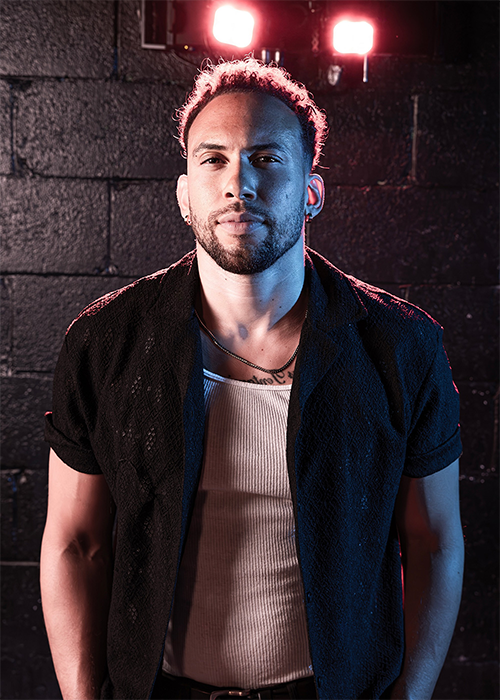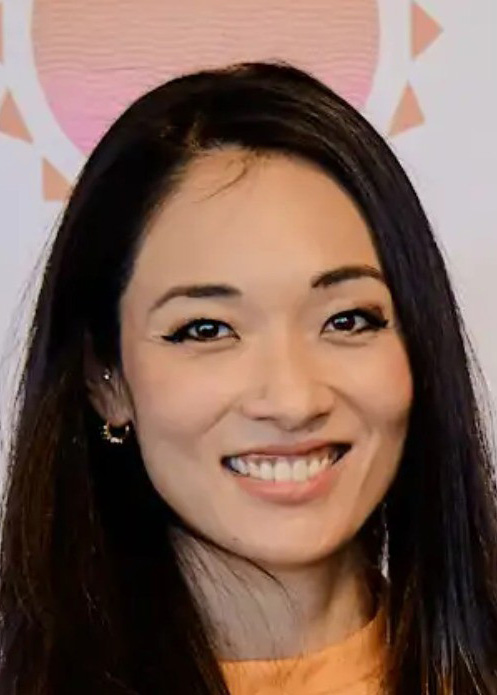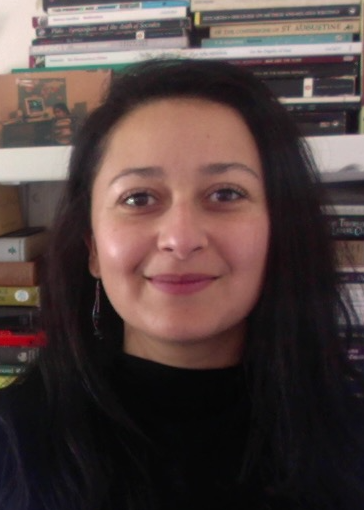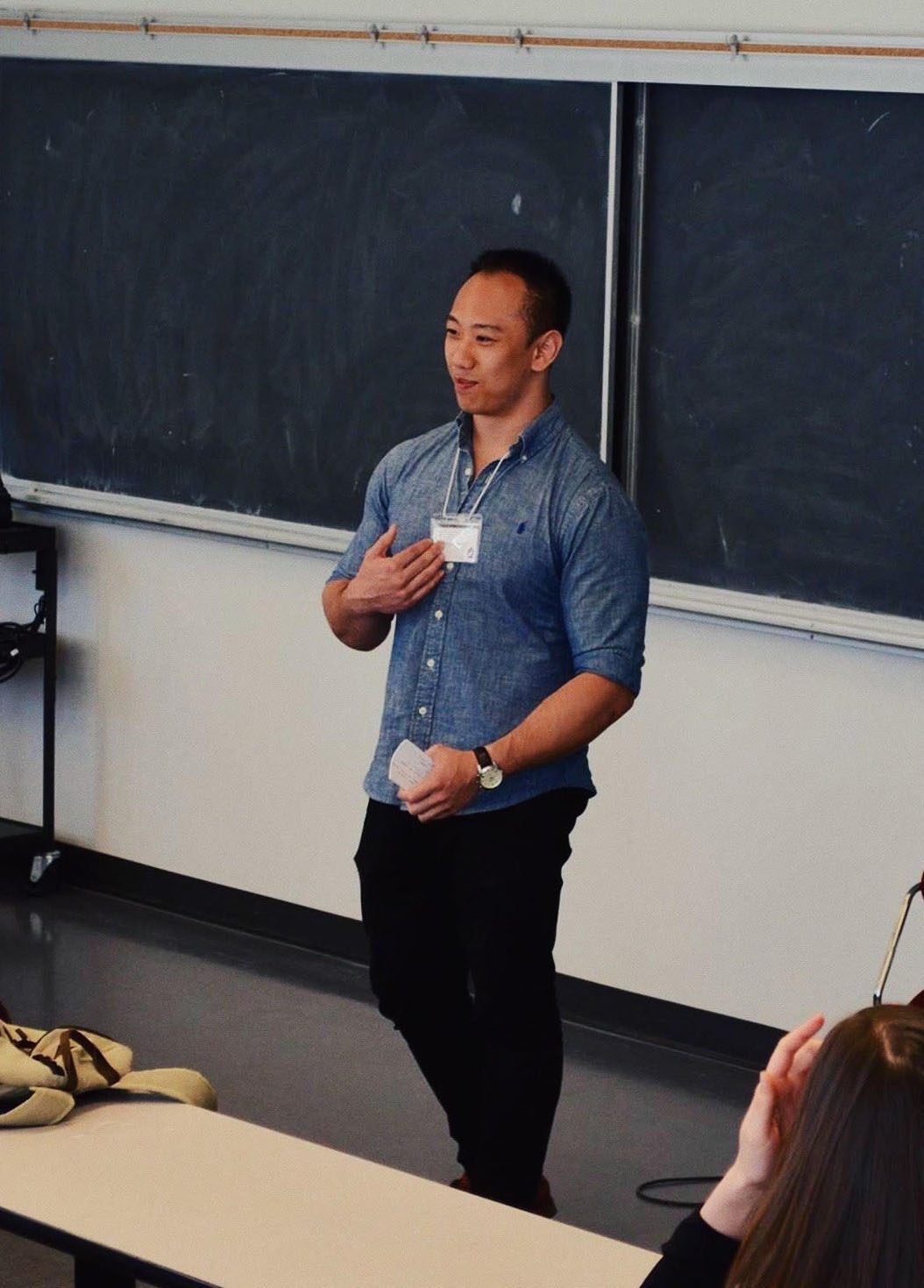Kavita Dau
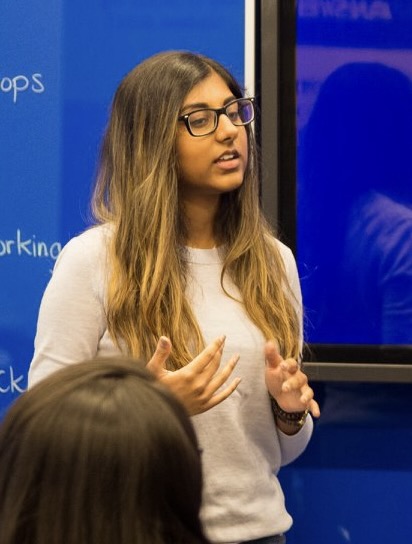
Why did you choose your program at UBC and what did you enjoy most about it?
I chose a BA with a major in economics and minor in English literature, as I wanted to understand how the world works and how people make decisions; I felt that I would learn quantitative models and decision-making frameworks in economics and understand qualitative human experience through English literature. I loved the mix of courses – I’d go from development economics to gothic English literature in the same day, and it always kept things interesting.
What were some of your most meaningful experiences at UBC?
My most meaningful experiences almost all revolve around the people I met, and they fall into two buckets. Firstly, I met some of my best friends at university – I met one of them in my very first class in first year, and now we live in different cities but still keep in touch and have made time to visit each other.
Secondly, I met some of my best mentors, both professors and students. If you’re curious about a subject, or confused about something, I’d emphasize how not-scary most profs are – I can think of so many profs off the top of my head who were incredibly helpful and made a huge difference to how much I enjoyed the subject as a whole. I’d also encourage students, if they’re not already, to get involved in clubs – especially for a full year, or multiple years if you can. I spent 2-3 years of my undergrad helping the AMS Entrepreneurship Hub, among other things, and some of my most memorable experiences were hosting and leading its events.
What choices did you make at UBC that contributed to your career success / journey?
I started early with coffee chats – I spoke with management consultants and people from various other fields while I was in first year to get an initial sense of what my career path could look like and what programs and opportunities I might want to apply for – like UBC’s Strategy Consulting Mentorship Program (SCMP), for management consulting.
Near the end of my degree, I wanted clarity on my potential career path and next steps, and I wanted to understand how successful people thought about critical career decisions in their own lives. I began speaking with professors and professionals on my podcast (The Art of Smart), learning about their lives, their career paths, how they made key decisions and what their advice was for students. I’m still running the podcast and have personally learnt a ton from the interviews.
What was your first job after graduation and what other jobs did you have before your current position?
My first job after graduation has been as an Associate at Boston Consulting Group. I did a summer internship at the firm in 2020; prior to that, I ran a startup during my undergrad, offering online courses to help students boost their exam results. I also worked as a research assistant while at UBC, in marketing and behavioural science.
Is your current career path as you originally intended? What challenges did you face in launching your career?
In hindsight, I can look all the way back to coffee chats in first year and my career path seems very logical and step-by-step. In reality, there was a lot of testing and weighing up potential paths. When I was applying for internships back in second/third year, I didn’t really go in with a mindset of “this could be my lifelong career”; my goal was to test out fields I thought I might be suited to and see if my hypothesis was right. One challenge I faced was building the right network and mentorship/support system to succeed, particularly as I was going through interviews. This was part of why I signed up to SCMP – the program gave me the support system to succeed in the consulting interview process.
What do you like about your current job and what do you find challenging? How does it relate to your degree?
I absolutely love the range of people you work with in consulting. Some people join straight out of undergrad, but there’s a huge range of engineers, scientists, doctors, linguists – just an awesome range of people to work with and learn from. I love the variety of the projects we do, and the feeling that what I’m working on will have a very tangible impact for people. It’s two sides of the same coin, as those aspects are often also the challenging part – the job is never static, so you always want to be actively learning and progressing, and because the work is impactful, you really do want to do a good job for the client. I mentioned that my courses in economics and English often related to how the world works and how people make decisions – now, my everyday experience revolves around decision-making; understanding the external environment, trying to optimize my own decision-making, and understanding the decisions of others in order to communicate effectively.
From your experience, what has been the value of having an Arts degree?
Arts gives you a breadth of knowledge that is rare and quite special — it means you get to explore and understand what you truly enjoy. If there’s a common theme I’ve heard among the professors on my podcast, it’s the value of being able to try different things as an undergrad student. There’s value in taking the time to find what interests you – I personally think that for most people, who don’t innately have something they feel ‘destined’ to do, exploration of potential interests is what undergrad is all about. You get to do this in Arts possibly more than in any other program. If you go into an Arts degree thinking you want to be a lawyer, and you try economics and realize that’s what you’re passionate about, you can dig deep into that; if you finish the degree and find you do want to be a lawyer, you can go on and specialize in that, with the knowledge that you explored other things and came back around to law. Regardless, you complete the experience with a broader understanding of the world and a better understanding of your own interests.
What advice would you give to students and alumni interested in breaking into your industry?
Talk to people. I think it’s incredibly valuable talking both to people who are in the industry and love it and those who did it and have moved on to new projects; you get to cut through what’s online or what you hear in the ether, and really understand what the job looks like. It’s even better if you can get some form of experience – an internship at the firm you’d like to join, or a similar internship at a different firm, to get exposure to the kinds of work you’d be doing and see how you like it.
What advice would you give to your first-year self?
There’s so much time between the start and end of your degree – I think I’d tell myself to stress a little less 🙂 Internships and career paths can feel daunting, and I think once you remove the pressure of “I need to find the perfect thing right now”, the whole process becomes so much more enjoyable, and you’re better able to sit back and actually listen to the people you meet at events or coffee chats, understand their experiences, and reflect on what you’ve learnt.
Kavita Dau



Why did you choose your program at UBC and what did you enjoy most about it?
I chose a BA with a major in economics and minor in English literature, as I wanted to understand how the world works and how people make decisions; I felt that I would learn quantitative models and decision-making frameworks in economics and understand qualitative human experience through English literature. I loved the mix of courses – I’d go from development economics to gothic English literature in the same day, and it always kept things interesting.
What were some of your most meaningful experiences at UBC?
My most meaningful experiences almost all revolve around the people I met, and they fall into two buckets. Firstly, I met some of my best friends at university – I met one of them in my very first class in first year, and now we live in different cities but still keep in touch and have made time to visit each other.
Secondly, I met some of my best mentors, both professors and students. If you’re curious about a subject, or confused about something, I’d emphasize how not-scary most profs are – I can think of so many profs off the top of my head who were incredibly helpful and made a huge difference to how much I enjoyed the subject as a whole. I’d also encourage students, if they’re not already, to get involved in clubs – especially for a full year, or multiple years if you can. I spent 2-3 years of my undergrad helping the AMS Entrepreneurship Hub, among other things, and some of my most memorable experiences were hosting and leading its events.
What choices did you make at UBC that contributed to your career success / journey?
I started early with coffee chats – I spoke with management consultants and people from various other fields while I was in first year to get an initial sense of what my career path could look like and what programs and opportunities I might want to apply for – like UBC’s Strategy Consulting Mentorship Program (SCMP), for management consulting.
Near the end of my degree, I wanted clarity on my potential career path and next steps, and I wanted to understand how successful people thought about critical career decisions in their own lives. I began speaking with professors and professionals on my podcast (The Art of Smart), learning about their lives, their career paths, how they made key decisions and what their advice was for students. I’m still running the podcast and have personally learnt a ton from the interviews.
What was your first job after graduation and what other jobs did you have before your current position?
My first job after graduation has been as an Associate at Boston Consulting Group. I did a summer internship at the firm in 2020; prior to that, I ran a startup during my undergrad, offering online courses to help students boost their exam results. I also worked as a research assistant while at UBC, in marketing and behavioural science.
Is your current career path as you originally intended? What challenges did you face in launching your career?
In hindsight, I can look all the way back to coffee chats in first year and my career path seems very logical and step-by-step. In reality, there was a lot of testing and weighing up potential paths. When I was applying for internships back in second/third year, I didn’t really go in with a mindset of “this could be my lifelong career”; my goal was to test out fields I thought I might be suited to and see if my hypothesis was right. One challenge I faced was building the right network and mentorship/support system to succeed, particularly as I was going through interviews. This was part of why I signed up to SCMP – the program gave me the support system to succeed in the consulting interview process.
What do you like about your current job and what do you find challenging? How does it relate to your degree?
I absolutely love the range of people you work with in consulting. Some people join straight out of undergrad, but there’s a huge range of engineers, scientists, doctors, linguists – just an awesome range of people to work with and learn from. I love the variety of the projects we do, and the feeling that what I’m working on will have a very tangible impact for people. It’s two sides of the same coin, as those aspects are often also the challenging part – the job is never static, so you always want to be actively learning and progressing, and because the work is impactful, you really do want to do a good job for the client. I mentioned that my courses in economics and English often related to how the world works and how people make decisions – now, my everyday experience revolves around decision-making; understanding the external environment, trying to optimize my own decision-making, and understanding the decisions of others in order to communicate effectively.
From your experience, what has been the value of having an Arts degree?
Arts gives you a breadth of knowledge that is rare and quite special — it means you get to explore and understand what you truly enjoy. If there’s a common theme I’ve heard among the professors on my podcast, it’s the value of being able to try different things as an undergrad student. There’s value in taking the time to find what interests you – I personally think that for most people, who don’t innately have something they feel ‘destined’ to do, exploration of potential interests is what undergrad is all about. You get to do this in Arts possibly more than in any other program. If you go into an Arts degree thinking you want to be a lawyer, and you try economics and realize that’s what you’re passionate about, you can dig deep into that; if you finish the degree and find you do want to be a lawyer, you can go on and specialize in that, with the knowledge that you explored other things and came back around to law. Regardless, you complete the experience with a broader understanding of the world and a better understanding of your own interests.
What advice would you give to students and alumni interested in breaking into your industry?
Talk to people. I think it’s incredibly valuable talking both to people who are in the industry and love it and those who did it and have moved on to new projects; you get to cut through what’s online or what you hear in the ether, and really understand what the job looks like. It’s even better if you can get some form of experience – an internship at the firm you’d like to join, or a similar internship at a different firm, to get exposure to the kinds of work you’d be doing and see how you like it.
What advice would you give to your first-year self?
There’s so much time between the start and end of your degree – I think I’d tell myself to stress a little less 🙂 Internships and career paths can feel daunting, and I think once you remove the pressure of “I need to find the perfect thing right now”, the whole process becomes so much more enjoyable, and you’re better able to sit back and actually listen to the people you meet at events or coffee chats, understand their experiences, and reflect on what you’ve learnt.
